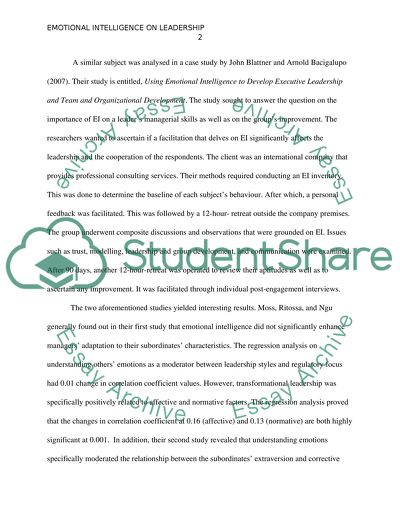Emotional intelligence and leadership Essay Example | Topics and Well Written Essays - 750 words. Retrieved from https://studentshare.org/psychology/1459329-emotional-intelligence-and-leadership
Emotional Intelligence and Leadership Essay Example | Topics and Well Written Essays - 750 Words. https://studentshare.org/psychology/1459329-emotional-intelligence-and-leadership.


